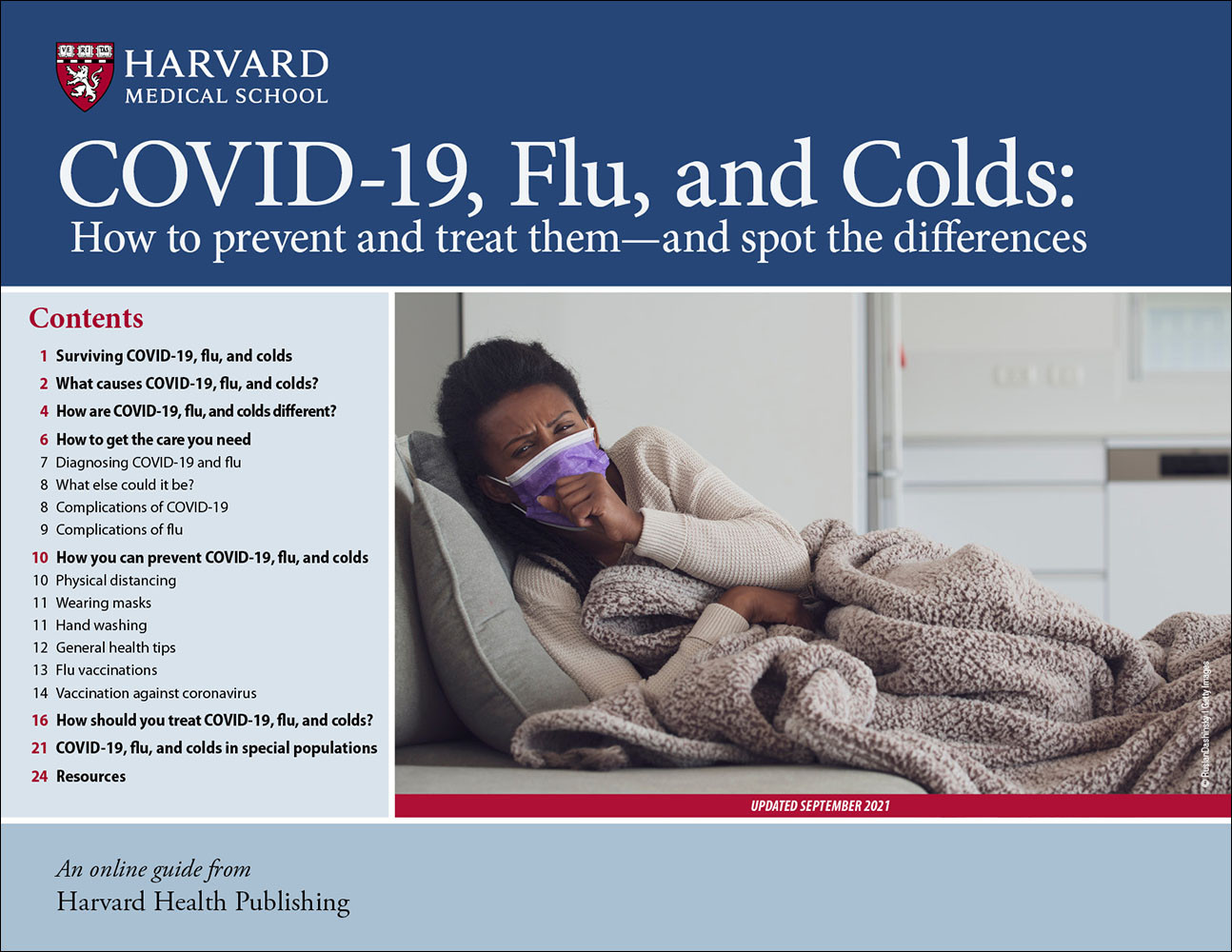Unvaccinated and misunderstood? Let's talk

With the COVID-19 pandemic dragging on, the Delta variant on the rise, and disagreements about masking greeting the reopening of schools, frustration levels have ramped up on all sides. After months of comprehensive review, the FDA has fully approved the Pfizer-BioNTech vaccine for people 16 and older (children ages 12 to 15 can continue to receive the vaccine under emergency use authorization). The Moderna and Johnson and Johnson vaccines also are likely to receive full FDA approval soon. Yet vaccination rates in the US have apparently hit a wall — or at least, a large speed bump — that the move from emergency authorization to full FDA approval of COVID vaccines will not immediately solve. Are you unvaccinated and feeling misunderstood? Are you vaccinated and feeling anger toward people who aren't? Please, read on.
Different people, different reasons for not getting vaccinated
A monthly poll tracking vaccine attitudes and experiences in in the US reported in June 2021 that the top reasons people gave for defer="defer"ring vaccination are:
- the vaccines are too new or were rushed to market too fast
- concerns about side effects or safety
- distrust in the government or medicine, especially from people of color and others who have experienced betrayal of their trust
- questioning the benefit of vaccination based on breakthrough infections — which typically do not cause serious illness or death, by the way — or because people would rather rely on their own immune system to fight off the virus.
The poll notes other reasons, too. More than one in 10 of people surveyed said the main reason they had not been vaccinated was one of the following:
- too busy or lack of time
- difficulty traveling to a vaccine site
- concerns about missing work
- don't like getting shots.
Separate surveys, including one polling younger adults, reached similar conclusions. They also found a surprising number of people are concerned about the cost of vaccination, although it's free.
Disappointment from those who find vaccines an easy call
Masking, shutdowns, illness, and suffering: we've all endured more than a year of this, or watched people in our wider circles and across the world do so. Many of us grieve losses big and small, wishing we could turn the clock back to Before Times.
Widespread vaccination seems like the clearest route to get the pandemic under control — yes, even considering breakthrough infections that people who are vaccinated may experience. So far, we've seen very few vaccinated people get hospitalized or die. In stark contrast, most severe illnesses and deaths in recent months have been among unvaccinated people.
Looking back a few decades, we need only consider the enormous impact of vaccination on polio, smallpox, influenza, and many other infectious illnesses to recognize the amazing potential of widespread vaccination to slow or even eliminate a contagion like COVID-19. Yet here we are, stuck at just over 60% of the eligible US population fully vaccinated as of this writing. And that's the average number. Vaccination rates vary tremendously across states and communities, despite this shared history of vaccine successes, the outstanding safety and effectiveness of the available vaccines for COVID-19, and skyrocketing cases of dangerously ill people overwhelming hospitals in many parts of the US.
It's disappointing, to say the least. For people who thought the decision to get a vaccine was an easy call — including me — it's a challenge to understand why so many would decline it. After all, had more people been vaccinated sooner, the Delta variant and the variants sure to follow might never pose the threat they do now. Indeed, with higher vaccination rates worldwide, the pandemic might be over by now.
Is it possible to change minds?
Depending on where you get information, you might read or hear that all unvaccinated individuals seem like brainwashed, diehard anti-vaxxers who cannot, or will not, see the reality of the COVID risk, and don't seem to care about the impact of their decisions on others. Never mind that outright insults and casting blame are unlikely to change many minds. Painting everyone who declines or hesitates to get a COVID-19 vaccine with the same brush is a mistake.
True, some people seem uninterested in considering facts that could change their minds about vaccination. And some believe outlandish, and certainly unproven, theories about the risks of vaccination: effects on fertility, changing one's DNA, and injected microchips. And there are people who knowingly and willfully spread misinformation about vaccines for personal gain, even people in leadership positions we entrust to put the welfare of others first. By sabotaging efforts to reduce the spread of COVID-19 — rejecting even common-sense measures like masks — this last group attracts well-deserved criticism and scorn.
But there is a large, quieter group among those who aren't vaccinated who don't fit these descriptions. And many of them are likely to get vaccinated at some point. In the July 2021 vaccine monitoring poll, only 14% of respondents said they would never be vaccinated for COVID-19. Another 3% said they'd only get the vaccine if required, presumably by an employer or other mandate. That leaves a large proportion of unvaccinated individuals who prefer to wait and see if new side effects emerge, if effectiveness drops when new variants arise, or have other concerns noted above. And they may decide to get vaccinated in the near future.
What might help?
Incentives from lottery tickets to doughnuts to encourage vaccination have seen some success. Measures being considered — or already in use — include allowing only people who have proof of vaccination to attend crowded venues, such as sporting events or concerts; higher health insurance premiums for unvaccinated folks; and vaccination mandates from employers.
Yet what's striking to me is that so many of the reasons holding people back from getting vaccinated seem imminently surmountable. So, let's pause. Let's stop the shaming and blaming long enough to think hard about solutions that fit the concerns so many people have:
- Arrange vaccination at a time when a day or two of side effects might be easier to handle. For example, if you work Monday through Friday, you should be able to get the vaccine on a Friday afternoon, so that a day or two of side effects would be less likely to require missing work.
- Require employers to provide paid sick leave to get vaccinated and, if necessary, deal with side effects.
- Provide childcare to allow people time to get vaccinated.
- Bring vaccines to the workplace and to neighborhoods where people live via mobile vans.
- Set the record straight regarding common misconceptions. Information campaigns should make it clear that COVID-19 vaccines are
- free
- based on decades of prior research
- acceptably safe and highly effective at preventing serious illness and death.
The bottom line
News about avid anti-vaxxers ending up on a ventilator with COVID-19 infection makes for dramatic media stories that attract millions of readers and viewers. But it's the more common stories people share of reasons for their vaccine hesitancy that may hold the key to reaching herd immunity and getting on top of this pandemic.
It's vitally important we get a better understanding of why people turn down the vaccine, and do all we can to make it easy for them to change their minds. So, let's take steps now to slow viral spread (including masking up and other measures suggested by the CDC), and push for solutions that address everyone's concerns, whether vaccinated or not.
Follow me on Twitter @RobShmerling
About the Author

Robert H. Shmerling, MD, Senior Faculty Editor, Harvard Health Publishing; Editorial Advisory Board Member, Harvard Health Publishing
Disclaimer:
As a service to our readers, Harvard Health Publishing provides access to our library of archived content. Please note the date of last review or update on all articles.
No content on this site, regardless of date, should ever be used as a substitute for direct medical advice from your doctor or other qualified clinician.
















